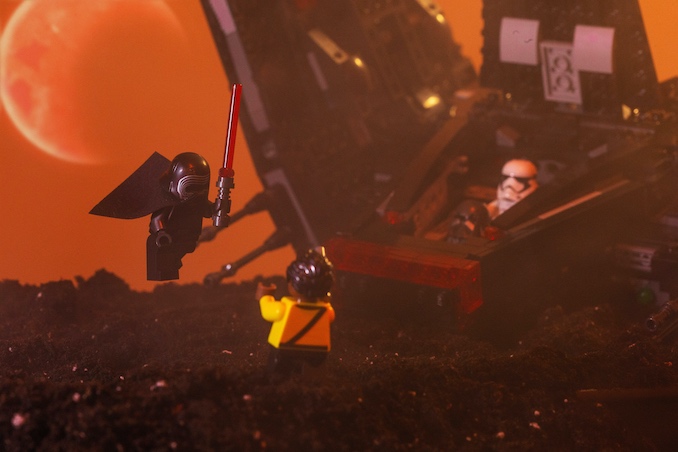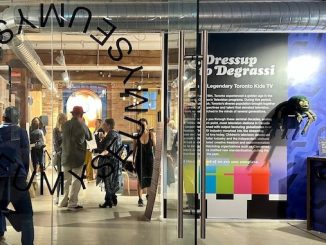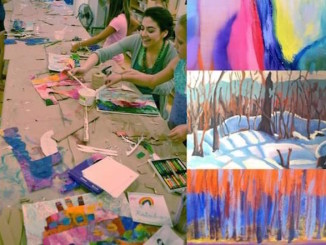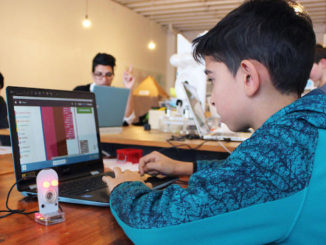The majority of us have fond memories of LEGOs as kids. Sprawled out for hours over the living room floor, constructing what we thought was the next Empire State Building. We would thoughtfully stack each coloured block, or exuberantly fling matchbox cars around our newly concocted LEGO racetracks. However for some, these memories were never made possible.

As Mr. Rogers once said, “adults sometimes see play as something you do to fill the time, but for children, it is their job”. For children, playing is very serious hard work, and allows them to feel a well earned sense of accomplishment. As Laura O’Hara, LEGO representative said, “for us, learning through play enables children to become creative problem solvers”. Through inadvertently undergoing challenges through play, it allows children to truly enjoy the process of problem solving. With the use of LEGOs, whether children are building an intricate set that isn’t exactly balancing properly, or a free handed bridge that isn’t quite strong enough for the weight of a toy car, they are provided with a safe space to try again, and come up with creative solutions. These types of skills will lend well for their futures and in the real world, where they will need to be filled with grit in order to be resilient and to tackle problems without feeling burned out.
On September 28th, LEGO announced the expansion of its Replay program into Canada, after a successful year long run in the US. The Replay program extends the joy of creativity brought on by LEGOs, by providing children and families who own loved LEGO blocks the opportunity to upcycle them. The bounty of almost brand new playing equipment created by this program will be relayed via schools, camps, and nonprofits in areas of children in need. Some nonprofits participating are Right to Play, True North Aid, and the Nova Scotia Department of Education and Early Childhood Development. “Thanks to the Replay program and the generosity of Canadians, Indigenous youth from coast to coast will be able to flex their imaginative muscles and experience the joy, creativity, empowerment, and satisfaction that comes from engaging in creative play.” said Rachel Mishenene, Executive Director of Indigenous Programs of Right to Play.
The process is simple, thus acting as an accessible and safe method for Canadians to “play it forward”. Facilitated by the LEGO Replay Program, Canadians can ship their existing, previously used and loved LEGO bricks, sets or elements, free of charge, to be collected by the LEGO team. Once collected, materials will be refurbished, thoroughly cleaned, and distributed to their new homes. In the US already, over 30,00 children have taken initiative to donate their bricks to other children. In Canada, in less than 7 days 300 people have already reached out about donating their bricks.
While the reception of new bricks will surely open doors for those who may otherwise not get to experience imaginative play, this opportunity will also open the eyes and hearts of children on the giving end. Often when children think of sharing, their experience and knowledge is limited only to instances within their classrooms or with their own siblings. However, this is not because of malice or greed, but rather out of innocence. With this program, children are actively taught about sharing and kindness not simply through reprimanding, but through meaningful action. Throughout the 1 year trial in the US, many children sent letters to LEGO after donating their bricks, where they explained “I never ever wanted to share my LEGO bricks, but when I heard about LEGO Replay, and I heard that you’re helping kids and that some of my bricks can go to these kids so that they have bricks to play with, I decided I had to do it”, Laura O’Hara shared with us. Sometimes, sharing on a larger scale can be so intangible when it comes to giving food to a foodbank or clothing to a Good Will. With this program, these bricks are helping children right around the corner, uniting US children with US children, and Canadian children with Canadian children.
With environmental sustainability becoming an increasingly imminent problem in society today, the donation of LEGO bricks is one way to help combat waste. The LEGO company believes that no item should ever go to waste, and a LEGO brick is truly the essence of that. The bricks are designed to be highly durable, with their play value restored almost to brand new after a simple clean and disinfecting. These bricks truly embody the circular economy, by providing children with a product that is nearly indestructible, continuously reusable, and most importantly endlessly creative.
If you have any bricks that you are not using, or know anyone who does, please visit the LEGO replay website and print out a free shipping label to take part in recycling the joy of play.




